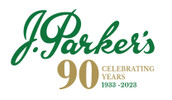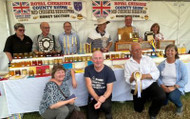Posted by Amber Williams on 11th Aug 2023
J. Parker's Staff Behind the Scenes - Jo on All Things Beekeeping
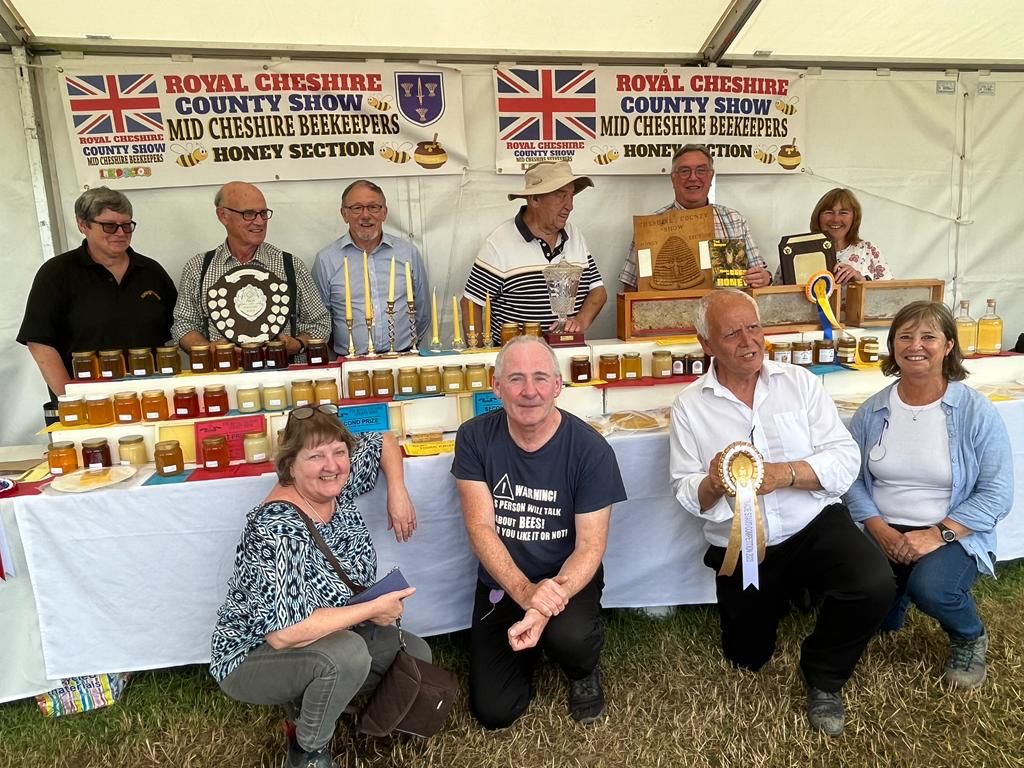
Ever wondered what goes on behind the scenes at J. Parker's?
We're giving you a glimpse of what our staff get up to when they're not in the office. This week, we've talked to Joanne (from Accounts) about her beekeeping hobby and her side business - honey!
If you've been thinking of starting a new green hobby, then maybe Jo will give you the inspiration you need to dive in.
What was it about beekeeping that got you started?
I got started in beekeeping when I was a carer for my husband. I rarely got to go out, so I wanted a hobby that didn’t take up too much time but would benefit me by being outdoors. I was introduced to a member of Mid Cheshire Beekeepers, and he took me with him to inspect his hives. He became my mentor and helped me get my own bees and that’s how I started the life of a beekeeper.
Do you have your own hive at home that you tend to?
I started with one hive and now have two in my garden and some on other sites and gardens. This year, I have 8 hives in total.
How often do you bee keep?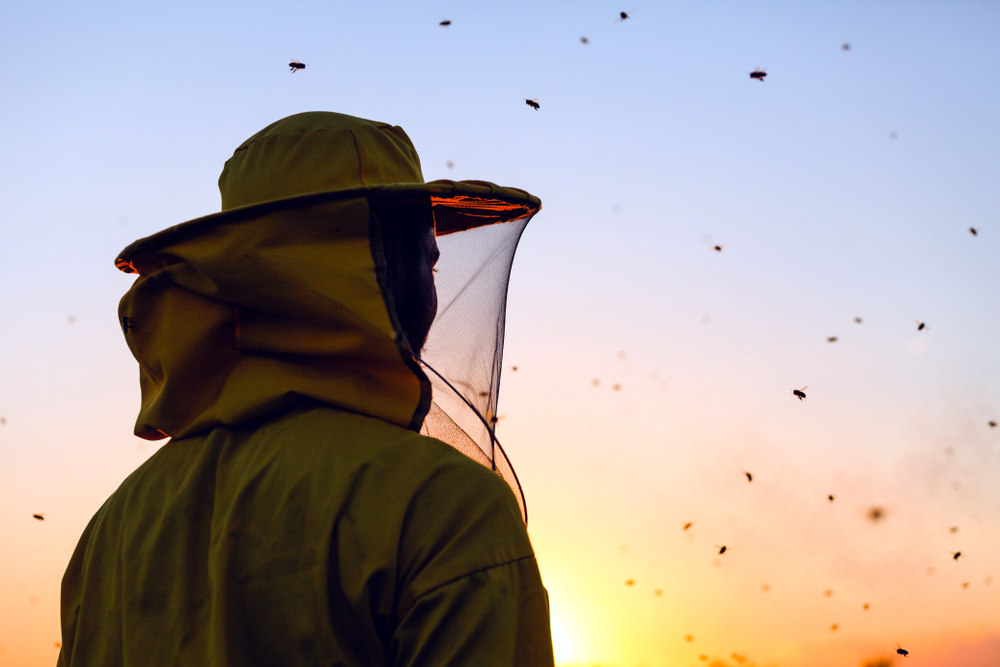
Credit: Shutterstock
It depends on the weather and temperature, but I usually start from May/June onwards. It’s important during swarm season to check them weekly and to monitor for any new queen cells emerging so you can try to prevent a swarm from happening, as you could potentially lose your bees and honey.
Tell us about your honey side business!
The honey is a welcome bonus from my hobby. The first year I got very little as my colony was building up. Last year was a good year for honey, but this year has been poor due to the wet weather and the bees not being able to forage. Unfortunately, they have been consuming a lot of their honey stores to survive.
I sell my honey to friends and family, neighbours and work colleagues, and the money I get from the honey helps to buy new equipment which you constantly need as a beekeeper. The name of my brand is Bent Lanes Honey, which is the street I live on. I also share the honey with the hives at other locations with the landowners.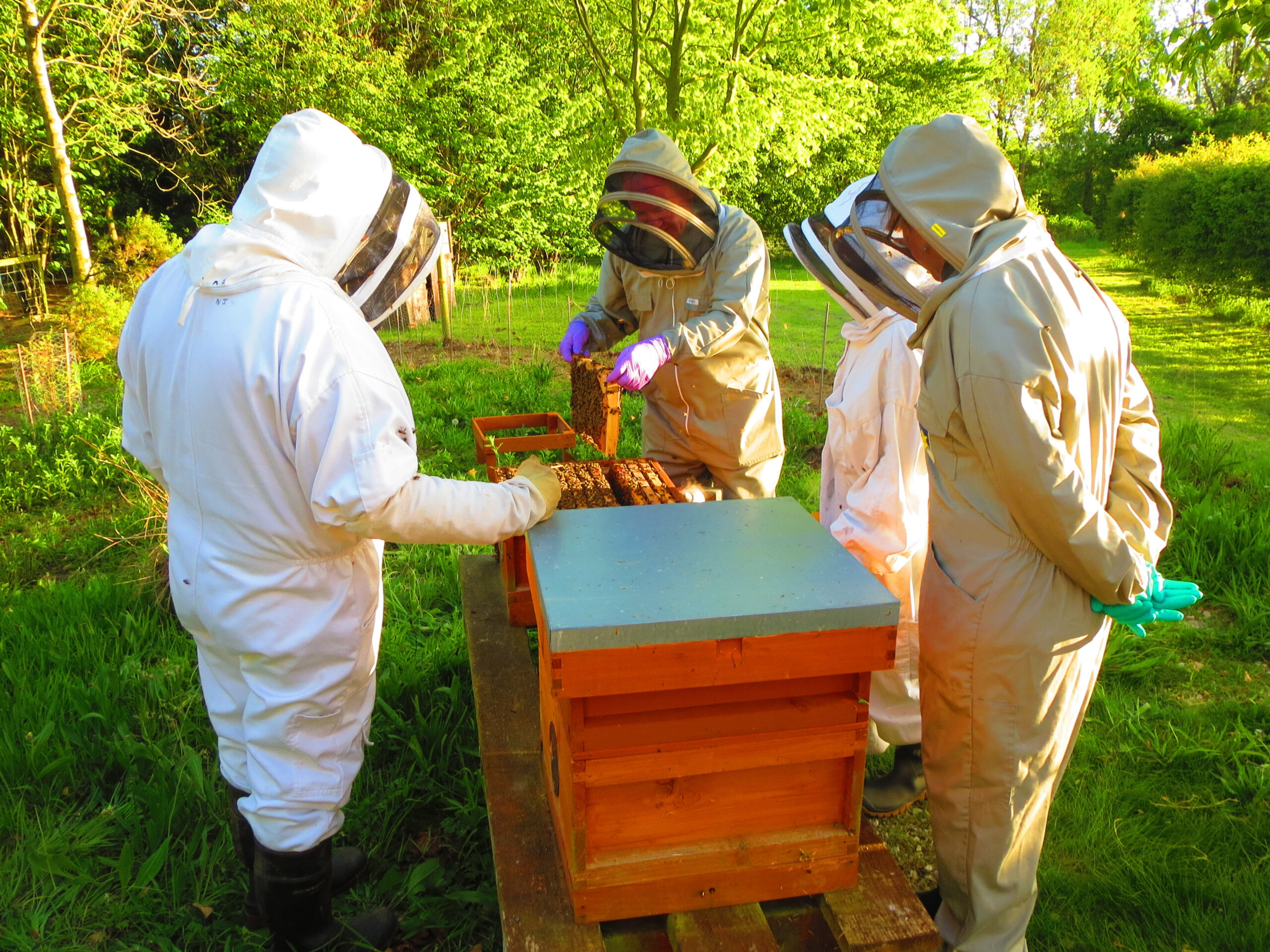
Credit: Mid Cheshire Beekeepers
What is your favourite part about beekeeping?
Feeling at one with nature. Knowing I’m looking after and helping a diminishing bee population. We check for diseases, monitor the bees and feed them in winter to ensure they have enough stores to survive.
What facts about bees do you think people don’t know but should
Male bees or drones can’t sting you; female bees are the ones who do all the work and go out and forage whilst the males do very little except eat and mate with the queen. In summer, honeybees only live up to 40 days and up to 200 days in winter.
Honeybees are not bumble bees -they're a totally different shape and size of bee. Honeybees can also make a new queen if their current queen is failing or dies.
Do you have any tips for budding beekeepers?
Join a local club! The BBKA has details of all local clubs which support new beekeepers and provide mentoring and training. Attend some taster days and training days to see if you are interested in becoming a beekeeper and finding out more information.
Do you have any tips for keeping bees safe in and around the garden?
Bees need water so you can leave shallow trays with stones, pebbles or marbles so they can balance and drink. You can also provide lots of bee-friendly plants by growing them in your garden.
Tell us about Mid-Cheshire Beekeepers
We have been working to set up our training Apiary and now have two hives there from which we can provide training. I assist in the training days and help and support the club. I am a member of the Mid Cheshire Beekeepers committee, and we have monthly meetings and discuss the Grozone site, training and events where we can promote beekeeping, i.e., Arley Hall, Cheshire show, Cheshire Game Fair and local events Like Cudingham Country Fair.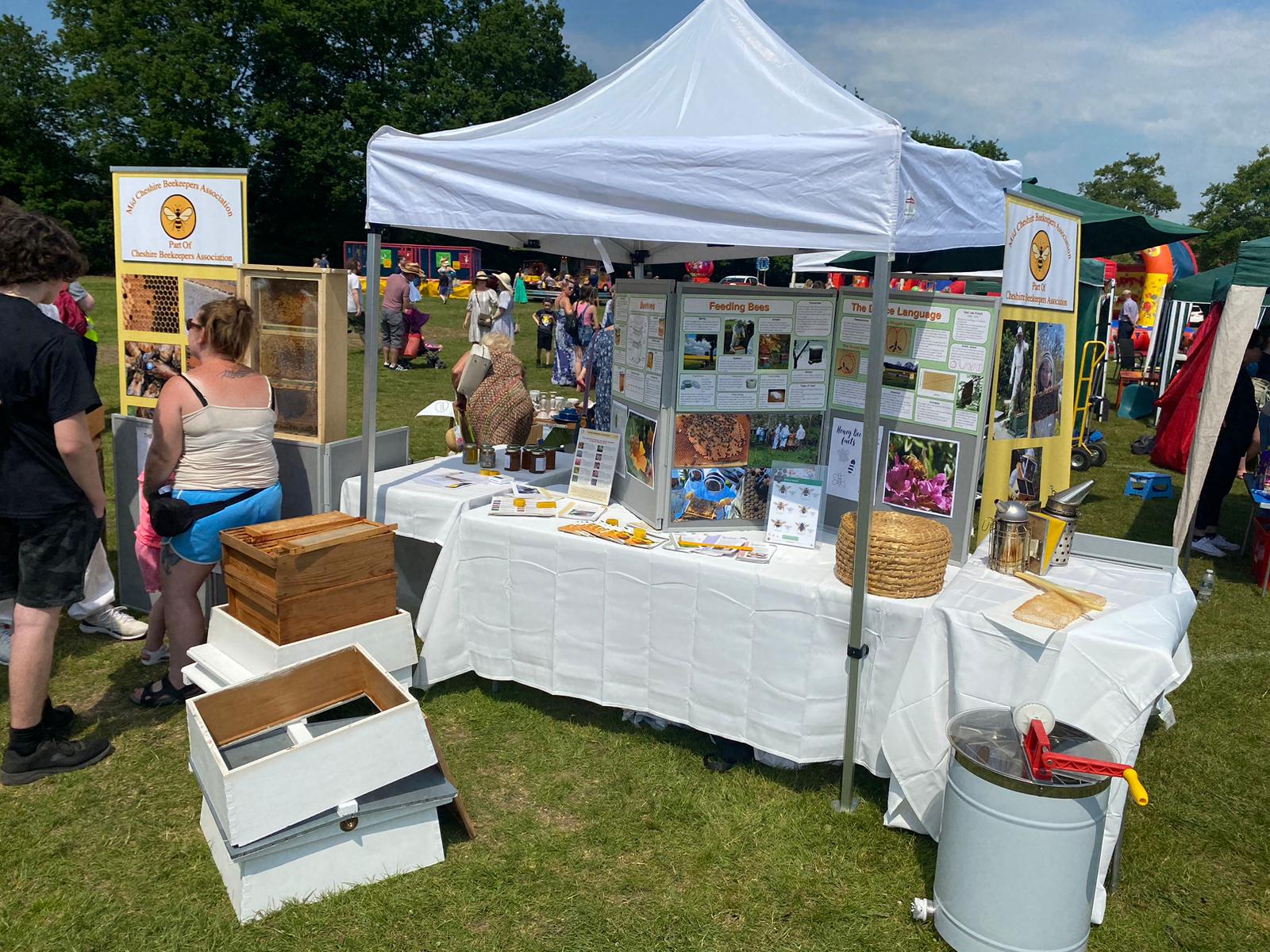
Midcheshire Beekeepers Stall at Cuddington County Fair. Credit: Mid Cheshire Beekeepers
What are the plans for the new Grozone site?
We have been working hard to get our training Apiary at the Grozone site set up so we can provide training and evenings of inspections and different procedures which need to be undertaken at some point in the beekeeping year.
The sponsoring support that J. Parker's has provided has enabled us to get vital equipment, visual aids and posters, a shed to store our equipment and events boards etc.
We certainly couldn’t have achieved all this without the support of J. Parker's.
